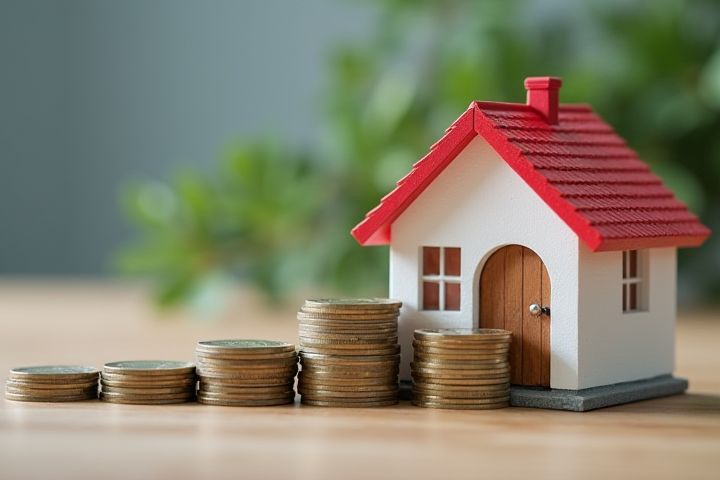
Several factors influence the increase in house market value, including location, demand, and property condition. Proximity to amenities like schools, parks, and shopping centers typically enhances desirability, driving prices up. The local economy plays a crucial role; job growth and low unemployment rates often lead to higher demand for housing. Property upgrades, such as modern renovations or improved curb appeal, can significantly boost value by attracting buyers willing to pay a premium. Lastly, market trends, including interest rates and inventory levels, can directly impact how quickly and substantially home values appreciate.
What Affects House Market Value Increase
Location
Location significantly influences house market value, often considered the most crucial factor by real estate experts. Properties situated in desirable neighborhoods with access to quality schools, parks, and amenities typically see higher demand, driving up prices. According to recent studies, homes within a 30-minute commute to major employment centers can appreciate by up to 15% more than those further away. Moreover, areas with robust infrastructure and low crime rates often attract more buyers, solidifying their market value over time.
Economic growth
Economic growth significantly influences house market value, as it typically leads to higher employment rates and increased income levels. In areas experiencing robust economic expansion, demand for housing escalates, often resulting in a heightened interest from buyers and investors. According to the National Association of Realtors, a 1% increase in local job growth can lead to a nearly 3% rise in home prices. As your community thrives economically, the potential for property value appreciation becomes more pronounced, making it an attractive market for real estate investment.
Interest rates
Interest rates play a crucial role in determining house market values, as they directly influence mortgage affordability for buyers. When interest rates rise, borrowing becomes more expensive, often leading to a decrease in demand for homes, which can stabilize or reduce property prices. Conversely, lower interest rates make mortgages more accessible, encouraging more buyers to enter the market and potentially driving up home values. Historically, a 1% change in interest rates can result in a significant percentage shift in home purchasing power, underscoring the importance of monitoring these rates to assess market trends effectively.
Supply and demand
The house market value is primarily influenced by supply and demand dynamics. When the demand for homes exceeds the available supply, prices tend to rise, reflecting the increased competition among buyers. Conversely, an oversupply of homes can lead to price reductions as sellers compete to attract buyers. Factors such as population growth, interest rates, and economic conditions significantly impact both demand and supply in the housing market, ultimately determining property values.
Employment levels
Employment levels significantly influence house market value, as higher employment rates typically lead to increased demand for housing. In areas where job opportunities are abundant, potential buyers are more inclined to invest in properties, driving up prices. A 1% increase in regional employment can lead to a corresponding 3% rise in home values, reflecting a strong correlation between job growth and housing demand. Your home's value can rise more rapidly in neighborhoods with diverse and stable employment opportunities, making them more attractive to buyers.
Infrastructure developments
Infrastructure developments significantly influence house market values, often leading to substantial appreciation. Investments in transportation systems, such as new highways or public transit options, can increase accessibility, attracting higher demand for nearby properties. According to recent studies, homes located within a one-mile radius of newly built infrastructure have seen value increases of up to 20%. Your property might experience a similar boost if it is situated near upcoming projects, like schools, hospitals, or retail centers, enhancing both desirability and market price.
Demographics
Demographic factors significantly influence house market value, with age distribution being a key element. For instance, millennials, representing approximately 22% of the U.S. population, are increasingly entering the housing market, driving demand for starter homes. Furthermore, urbanization trends show that 83% of the U.S. population is projected to live in urban areas by 2050, which can elevate property values in metropolitan regions. Household income levels also play a crucial role, as areas with a median household income above $75,000 often experience higher home appreciation rates.
Government policies
Government policies significantly influence house market value through regulations, tax incentives, and funding for public infrastructure. For instance, policies that promote affordable housing can lead to increased demand and higher property values in targeted areas. Tax deductions for mortgage interest can enhance buyer affordability, thereby driving up housing prices. Furthermore, government investment in transportation and community services can elevate neighborhood appeal, resulting in an average property value increase of 10-20% in the short term.
Neighborhood improvements
Neighborhood improvements significantly impact house market value. Well-maintained parks and recreational facilities can boost property desirability, leading to a potential 10-20% increase in home prices. Infrastructure enhancements, such as upgraded public transportation or new schools, often attract families, raising demand and ultimately values. You should consider how these enhancements correlate with local amenities, as proximity to quality resources can enhance your property's worth.
Property condition
Property condition is a critical factor influencing house market values, with well-maintained homes often commanding higher prices. Upgrades such as modernized kitchens and bathrooms can boost a property's appeal, typically resulting in a 10-20% increase in value. Factors like the roof's age, foundation integrity, and overall cleanliness contribute significantly; houses in excellent condition can sell for up to 30% more than those requiring repairs. As a homeowner, prioritizing regular maintenance and essential renovations can effectively enhance your property's market value over time.
